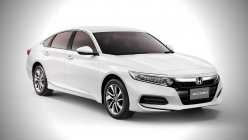Electric vehicles (EVs) need the right kind of electric equipment or electric vehicle supply equipment (EVSE) to charge them. There are kinds of connector types used to charge an electric car used for the EVSE specifically. These EVSE connectors are also called sockets too.
Several types of sockets or connectors are available and compatible with types of EV equip used for charging. More universal EV sockets or connectors are used to adapt the cords of most EV owners. This allows the EV connectors to wear out less fast, especially for public EV charging stations.
Charging times vary for these EV connectors or sockets used on EV equipment. One of the fastest socket chargers is universal that allows charging speeds of 22KW that is about 140 km/hour. Some are slower chargers will charge at 20km/hour. Time enough to recharge any Tesla in 3-hours tops, which is fast enough but not too long too.
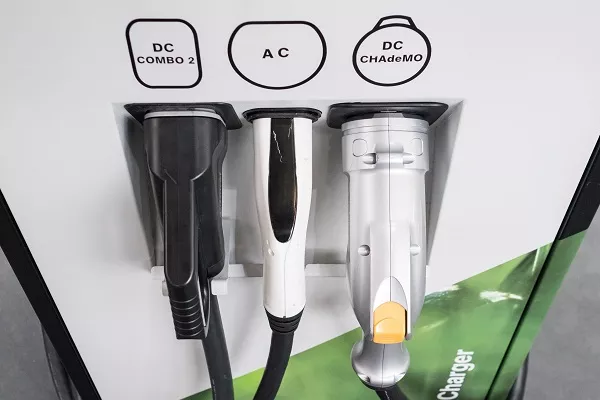
Different types of EV charger available in the market
You’ll need this important point to get the EV cable with the proper length for fixed or portable EV connector or socket to be used. Get a cable length of 4 to 5 meters as the best option for more space to move about.
It would be inconvenient when it is too short! If you’re planning on getting an EVSE, use a universal socket with enough lead for the cable. If the length is needed, try a 12-meter cable that has several colors available.
One can choose between fast charging and slow charging EV connectors or sockets. Another thing is choosing the charging cable to be used with it, and it comes in two types.
Select what suits you better and should be compatible with EVSE you’ll be using for the car. In this article, Philkotse.com will list out the different types of EV chargers to choose from. Keep in mind they are rated for charging speeds and how many amperes they work at.
EV Buyer's Guide - All About Charging
1. Connector plug Type 1
There are many types of EV connector plugs that are suited for specific EVSE equipment. Most are rated for how many kilowatts that translates to charging power. A type 1 connector plug will be the equivalent of 7.4 kilowatts or 230 volts and 32 amperes. It should be noted that a type 1 plug is only used for Asia and not much in Europe.
One would find it in public type 1 stations that are relatively scarce and hard to find. Make sure to get a plug that is used every for better chances of charging anywhere.
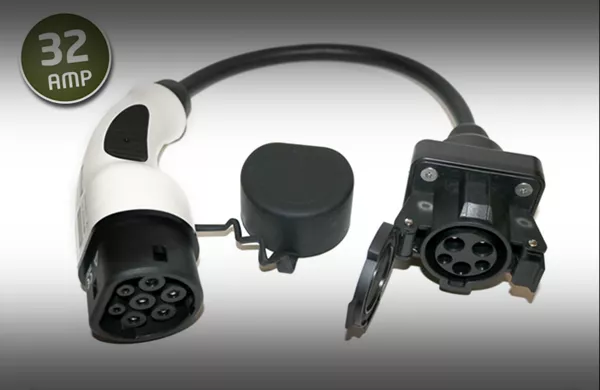
A type 1 connector plug will be the equivalent of 7.4 kilowatts
2. Connector plug Type 2
If you’re in Europe, you’ll find this triple-phase plug everywhere because this is the standard plug used for this area of the world. You’ll be surprised that these public charging stations have up to 43 kilowatts output or 400-volts, 63 amperes and alternating current.
Compare this to a private charging station that has 22 kilowatts is more common. This is far slower than a public charging station that has type 2 sockets equipped. Type 3 connect plug can be sued for both type 1 or 2 charging stations.
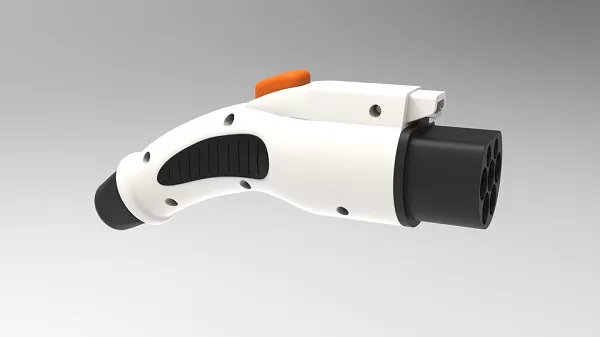
EV charger Type 2
>>> Consider buying an EV, check it: Pros & Cons of Buying Used Electric Vehicles
3. Plugs for combined chargers or CCS
Consider the combined chargers or CCS is an upgraded version of a type 2 connector plug. This enables quick charging compared to other plugs that top up slower. An extra feature of these plugs is extra contacts for the AC and DC for faster top-ups.
Quick charging won’t be possible without these features because they have at least 170 kilowatts of power for the lesser time when charging. This is more than the usual 50-kilowatt output for most charging stations, public or at home.
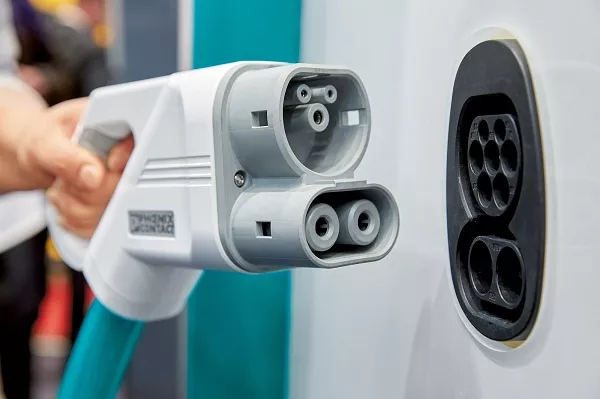
4. CHAdeMO plug
If you’ve got any of these cars, like a Honda, Kia, Citroen, Mazda, Nissan, Peugeot, Subaru, Tesla, and Toyota that is compatible with it. This is found in Japan and allows a charging rate at 50 kilowatts.
Usually, it will be found in public charging stations most of the time. Developed for Japan which can also be used for compatible cars as well. Check other cars in this list for compatibility before trying this connector plug.
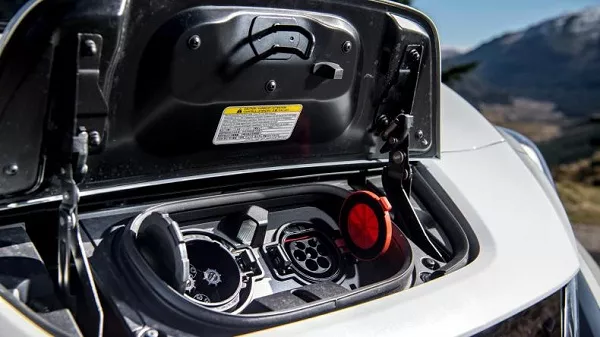
CHAdeMO plug allows a charging rate at 50 kilowatts
5. Tesla Supercharger
For optimum charging for Tesla cars, there is specially modified connector plug which is the Type 2 Mennekes plug. Instead of relying on third-party products that are much better with Tesla centric EVSE charging equipment.
Charging the Model S up to 80% is easy within 30 minutes of topping up the batteries. Although Tesla will charge their customers EVs for free without any fee! Tesla’s charger can only be used with it only, not with any other car.
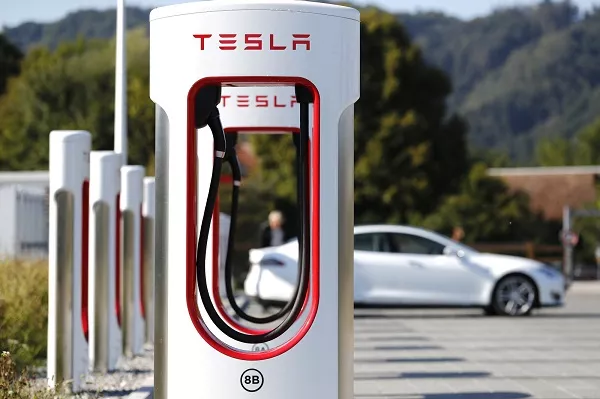
It is free for Tesla drivers to charge their vehicle
Several types are used for home charging and for travel to be used with portable EVSEs or charging station. It’s better to get the best one for your purposes.
6. CEE plug
This connector plug will have several types that are available to get.
- Camping plug that is single phase blue option that has 3.7 kilowatts or 230-volts and with 60 amperes output.
- Triple phase red-version used for industrial sockets
- A small industrial plug (CEE 16) with 11 kilowatts or 400-volts with 26 amperes.
- Use this CEE 32 or large industrial plugs that have 22 kilowatts or 400-volts with 32-amperes.
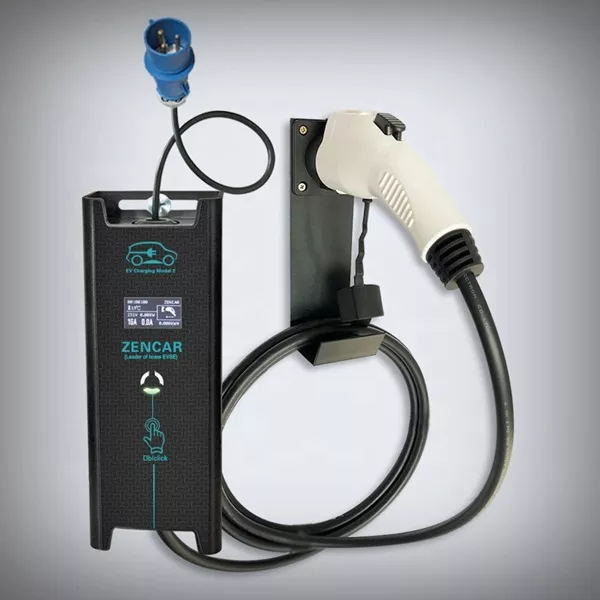
CEE plug comes with several types
7. Domestic socket
With these connector plugs that are usually for home use that is used with a mode 2 charging cable. It’s better to have at least 230 volts or 2.3 kilowatts, 10 amperes available for any home EVSE. Sometimes a domestic socket can be found in public charging stations.
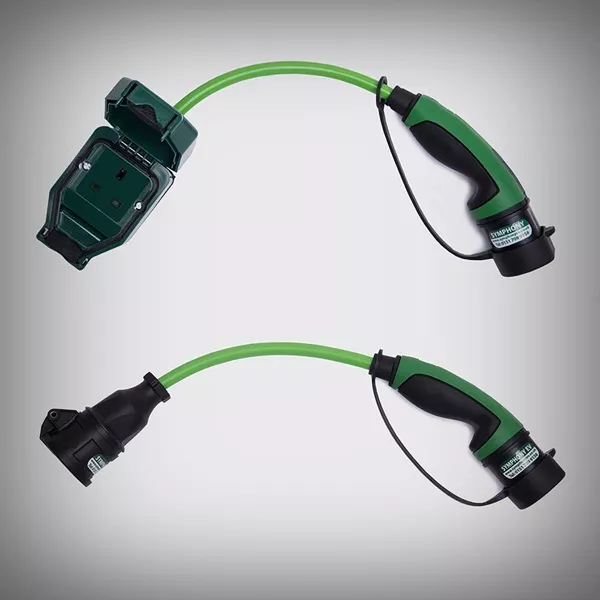
The domestic socket is used with a mode 2 charging cable
Wrapping up!
Charging any vehicle with Electric Vehicle Supply Equipment (EVSE) is crucial. Several kinds of connector types used to charge an electric car should be compatible too! Any owner of any PHEV, EV, or BEV should be very familiar with it too.
EVSEs are almost like other chargers except that it uses specialized equipment for it. Without the proper connector for outside or the home, will prove a big problem to charge properly. Go over the article and let Philkotse educate you to the finer points of owning the proper connector.
>>> Check out for more helpful tips and advice for your car buying.


